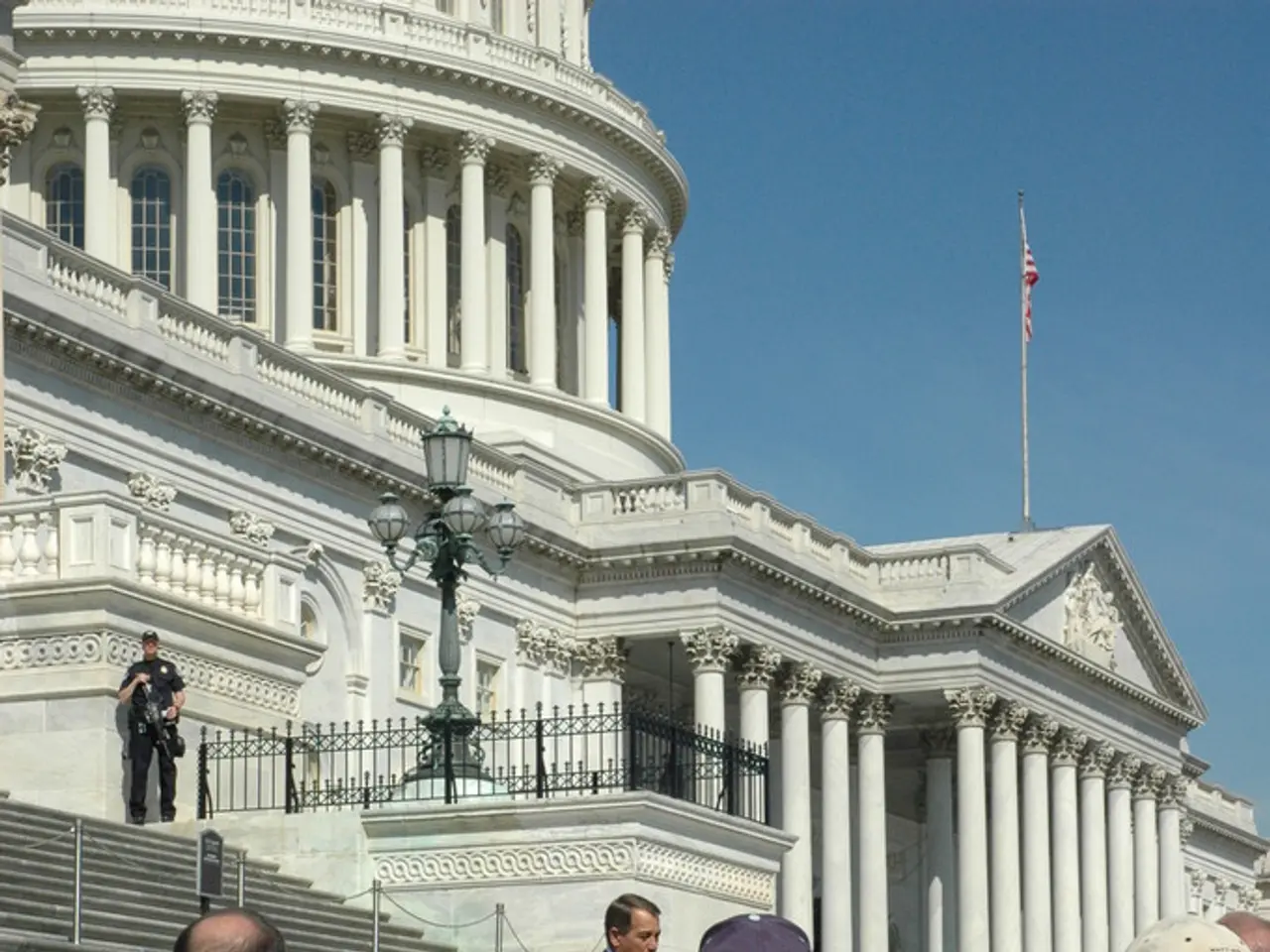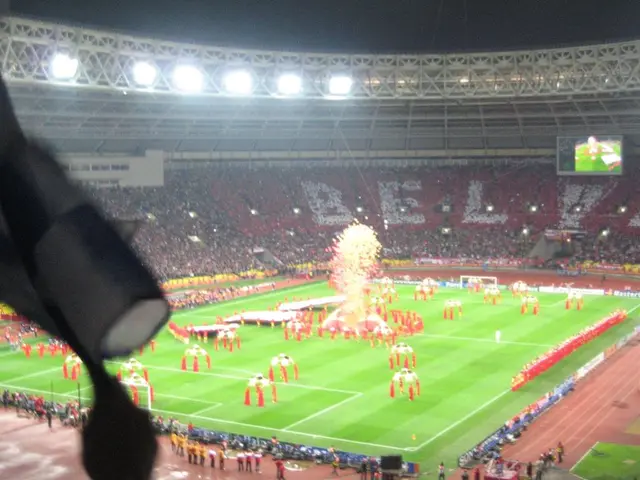Military units of the National Guard conducted a demonstration of military strength in response to potential protests surrounding immigration raids, according to a general's testimony.
=================================================================================
In the heart of Los Angeles, a controversy has been brewing over the deployment of National Guard troops and U.S. Marines in a public park with a large immigrant population. The operation at MacArthur Park, which took place on July 7, has sparked a legal debate about the Posse Comitatus Act (PCA) and the role of military forces in domestic affairs.
The Posse Comitatus Act, a law passed in 1878, generally prohibits active-duty military, including federalized National Guard troops, from engaging in domestic law enforcement activities such as arrests or searches. The Act is intended to prevent the federal military from enforcing civil law.
The recent operation at MacArthur Park has raised questions about whether the deployment of federalized National Guard soldiers and Marines for immigration enforcement operations violated the PCA.
The troops were allegedly set up as a show of force against undocumented people and those protesting the Trump administration's immigration crackdown. They were accused of engaging in militaristic displays of force, blocking access to public streets, setting up roadblocks and perimeters that restricted civilian movement, and even detaining civilians.
However, the Trump administration argues that the troops were not enforcing law themselves but were protecting federal property and federal agents involved in enforcement. They were federalized under Title 10, authorized when there is a rebellion or danger of a rebellion or inability of the President to enforce laws.
California, on the other hand, challenges this argument, claiming the military was in fact directly supporting law enforcement by securing perimeters, detaining civilians, and assisting arrests—activities seen as active law enforcement roles prohibited by the PCA.
The courts are now evaluating the extent and nature of military involvement to determine legality under the PCA. The interpretation hinges on whether National Guard and Marine troops deployed under federal Title 10 status engaged in prohibited law enforcement or were lawfully protecting federal interests.
The dual state-federal control and operational use of the National Guard, especially in situations like D.C. where the Guard is always federalized under presidential command, further complicates PCA interpretation and raises constitutional and policy concerns.
This legal debate is a significant development in the ongoing discourse about the role of the military in domestic affairs and the limits of the Posse Comitatus Act. The trial will determine if the Trump administration violated the Act by using military troops to illegally enforce civilian law in California.
[1] Posse Comitatus Act: A Brief Overview, Congressional Research Service, 2019. [2] Posse Comitatus Act and the Use of the National Guard: The Limits of Federal Control, Congressional Research Service, 2018. [3] Lawsuit Challenges Trump Administration's Use of Troops in California for Immigration Enforcement, American Civil Liberties Union, 2019. [4] Posse Comitatus Act and the Use of the Armed Forces for Law Enforcement Purposes, Congressional Research Service, 2018. [5] The Constitutionality of the Use of the Military in Domestic Law Enforcement, Congressional Research Service, 2018.
- Toronto's city council has expressed concern over a controversial government policy, which allegedly encourages a rise in crime-and-justice-related activities, and is calling for more stringent policy-and-legislation to address the issue.
- In the realm of general-news, a court in Toronto recently ruled that the government's current policy violates civil rights, prompting calls for a reform in politics and law.
- Protests have been ongoing in Toronto's arts district, with citizens expressing their discontent towards the rising crime rates and the government's lack of action in enforcing law and order.
- The city's government, meanwhile, insists that the recent surge in crime is due to a complex web of factors, including socio-economic issues and international war-and-conflicts, and that addressing these roots will eventually lead to a decline in crime rates.
- However, the opposition party in Toronto's politics has been pressing for a more hardline approach, calling for the deployment of law enforcement personnel to combat the rise in crime and ensure public safety.
- News outlets across the country have been covering the ongoing debates about Toronto's crime policy, highlighting the various viewpoints and the impact it has on the city's citizens.
- As the debate continues, Toronto's residents eagerly await the government's decision on the future direction of crime policy, hoping for a solution that will stem the tide of rising crime and restore peace in their city.





